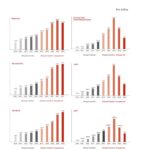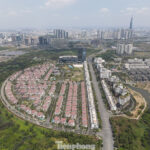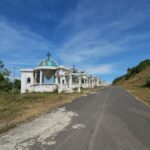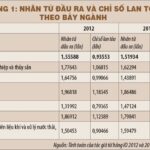## Framing the Issue: Vietnam’s Real Estate Intermediaries Under Scrutiny
Vietnam’s Lam Dong province has issued a directive to real estate intermediaries, including agencies, organizations, and individuals, to uphold transparency in their dealings. They are accountable for the accuracy of the information they broker and must operate within the confines of the law. Individuals engaging in real estate brokerage are required to possess valid practice certificates and are only permitted to operate through legal entities. Any violation of the prohibited acts in real estate business, as outlined in Article 8 of the Law on Real Estate Business, is strictly forbidden.
According to the People’s Committee of Lam Dong province, there has been a surge in illegal real estate brokerage activities, particularly in areas with upcoming infrastructure, tourism, and urban development projects. This has led to negative consequences such as market information distortion, artificial price inflation, disputes, violations of construction orders, and adverse effects on the local investment environment and social order.
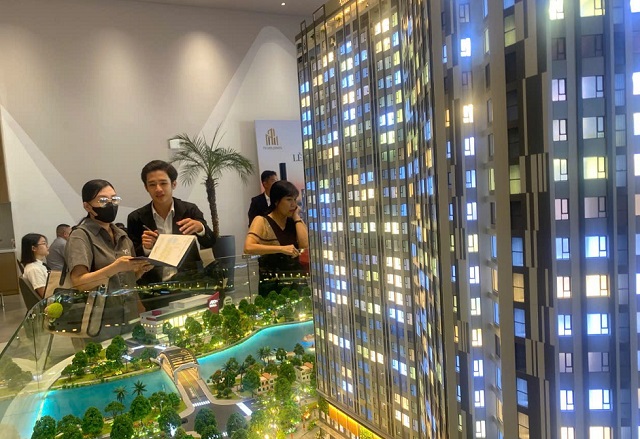
Several localities are taking action to rectify the operations of real estate intermediaries.
|
The Department of Construction of Khanh Hoa province has also instructed real estate businesses and individuals to declare their information and review their operations to curb speculation and price manipulation. Businesses and individuals engaged in real estate activities, including enterprises, trading floors, and brokers, must promptly supplement and perfect their legal status if they lack the necessary legal requirements, such as registration, practice certificates, or inadequate personnel. Violators will face strict penalties, including the suspension of operations in accordance with the law.
For real estate intermediaries, it is mandatory to possess a valid practice certificate and operate solely within the framework of legal entities. Freelancing or practicing with an expired certificate will result in legal consequences. To enhance management effectiveness, the Department of Construction has introduced QR code information declaration. This information will be updated in the system for inspection, traceability, and verification purposes.
Ho Chi Minh City’s Department of Construction is collaborating with local authorities to inspect enterprises, trading floors, and individuals engaged in real estate brokerage. Violations such as unlicensed operations, providing false project information, or misleading legal advertising will be subject to stringent penalties, including license revocation.
Additionally, Ho Chi Minh City is expediting the development of a real estate transaction information database to provide citizens and investors with access to official project information regarding legality, progress, and developers. This initiative aims to mitigate risks for citizens engaging in transactions and contribute to the market’s integrity.
Lowering the Bar: Easy Entry Leads to Unqualified Intermediaries
Mr. Than Vinh Long, Deputy Head of the Urban Development Division of the Ho Chi Minh City Department of Construction, pointed out the negative impact of unregulated and unlicensed intermediaries on the city’s real estate market transparency and stability.
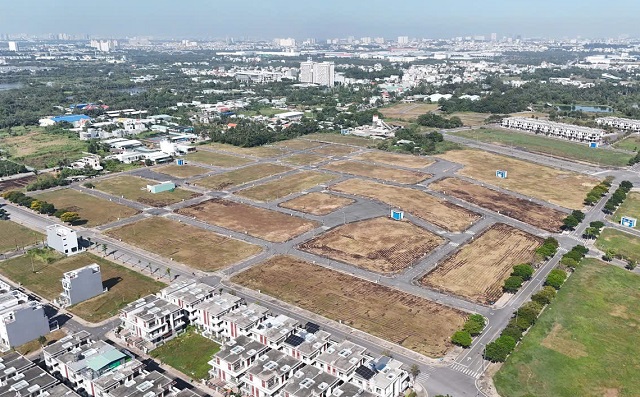
The rampant activities of unqualified intermediaries are detrimental to the transparency and stability of the real estate market.
|
“The real estate market cannot sustain long-term growth without transparency. Therefore, brokerage activities must be professionalized and governed by legal frameworks. Ho Chi Minh City is determined to take action against violations to safeguard the legitimate rights and interests of its citizens,” asserted Mr. Long.
According to the Vietnam Real Estate Brokers Association (VARS), the real estate market has entered a new cycle, exhibiting positive signals since the beginning of 2025. This has led to a surge in the demand for brokerage personnel, resulting in a significant increase in the number of returning and new entrants to the market, estimated to be in the tens of thousands.
However, the market continues to face a concerning issue: the prevalence of unlicensed brokers and those operating without proper qualifications. Many individuals claim to be real estate intermediaries despite lacking any formal training or participation in recognized programs. Some even attend unauthorized courses that lack proper content and are not acknowledged by the authorities.
“More alarmingly, some training institutions, fully aware of the legal requirements, deliberately operate outside the law to profit from unsuspecting students. They exploit their lack of knowledge to enroll them in substandard courses, increasing market risks and tarnishing the reputation of the real estate brokerage profession,” VARS warned.
Consequently, there has been a rise in the number of unqualified intermediaries providing unprofessional services, exposing clients to risks such as erroneous legal advice, brokering land that does not meet transaction requirements, marketing phantom projects, and inflating prices to create market frenzy…
In response, VARS urged relevant authorities to intervene by conducting inspections and imposing strict penalties on such illegal training activities to eradicate the “cash-for-certificates” schemes, thereby safeguarding the interests of students and upholding the integrity of the real estate training market.
The Vietnam Real Estate Brokers Association recommended disclosing a list of institutions qualified to provide training and issue practice certificates, as stipulated in Circular 04. They also proposed expediting the organization of examinations to prevent the prolonged existence of “half-baked” intermediaries.
|
A report by Dat Xanh Services – FERI revealed that many freelance intermediaries have returned to work for brokerage companies. In this new cycle, both developers and brokerage firms, along with their distributed products, are being scrutinized more carefully by individual brokers. A survey on “Factors Considered by Sales Staff When Returning to Work for Brokerage Companies,” conducted by Dat Xanh Services – FERI, showed that 33% of respondents prioritized salary, bonuses, commissions, and benefits. Approximately 27% valued the work environment and opportunities for advancement, while 24% chose suitable and easy-to-sell products. Over 15% opted for company reputation, and 1% had other opinions. |
Duy Quang
– 15:14 18/08/2025
The New Era of Vietnam’s Real Estate: A Pioneer’s Leap
In the midst of an ever-evolving and recovering economy, the Dot Property Vietnam Awards 2025, themed “Sustainability: The Era of Pioneer’s Ascend,” stands as a notable milestone. This occasion celebrates businesses that have demonstrated resilience and adaptability amidst market fluctuations, recognizing their unwavering fortitude and innovative spirit.
Why Hasn’t the Saigon Dai Ninh Project Been Recalled Yet?
The Lam Dong Provincial People’s Committee has announced its decision to initiate procedures for the retrieval of land allocated for the Saigon Dai Ninh project. This move is in accordance with relevant regulations and showcases the committee’s commitment to efficient land management and responsible development practices.
Symlife – A Fresh Take on Urban Living for Millennials in Northeast Ho Chi Minh City
In the midst of soaring property prices in Ho Chi Minh City, the dream of home ownership for young people seems increasingly out of reach. However, the arrival of Symlife in the city’s northeast offers a fresh perspective tailored for the youth, seamlessly blending convenient living spaces with sustainable value enhancement prospects.

